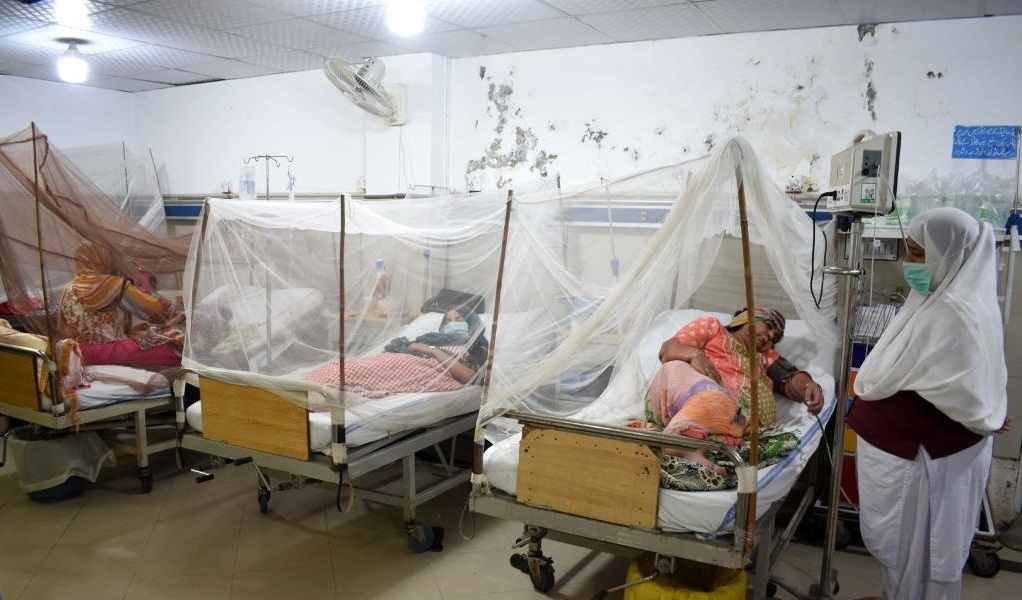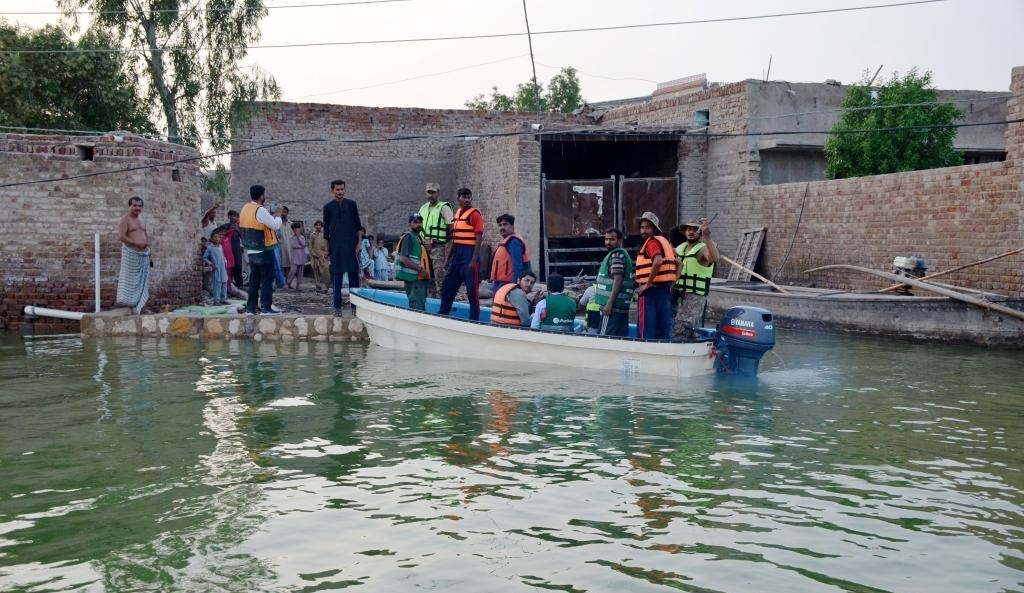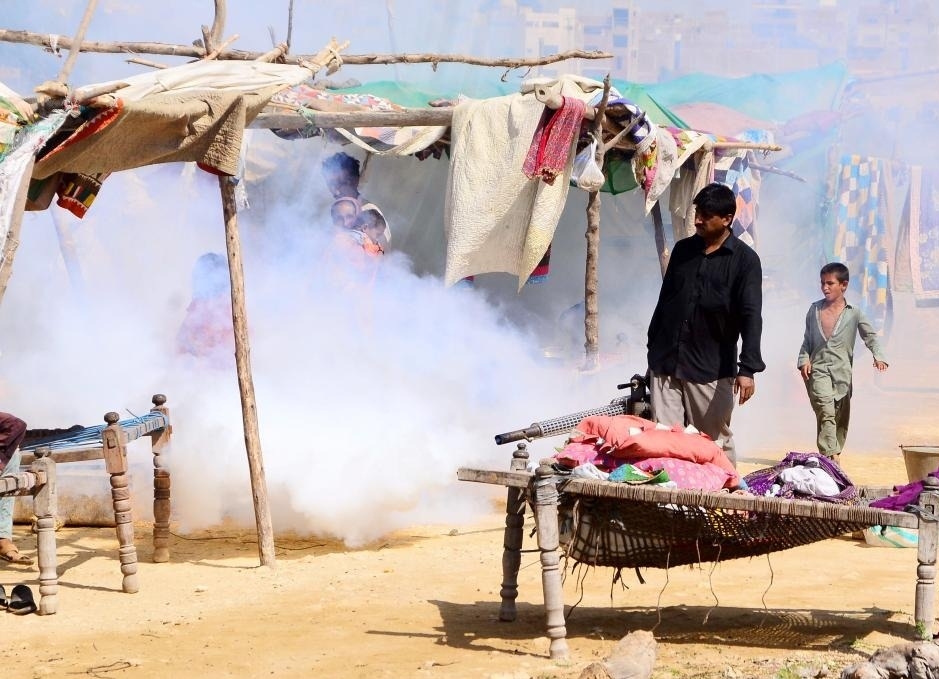Medical researchers say that the lack of adequate healthcare infrastructure remains one of Pakistan’s biggest challenges, pointing to political instability as a major reason, writes Dr Sakariya Kareem
Pakistan has witnessed the outbreak of several fatal diseases in the recent past even as the government struggles to prevent and contain the infections, manifesting deteriorating healthcare infrastructure and services. While Pakistan remains among the very few countries to host poliovirus, several other diseases are still rampant, killing people across the country.
As the monsoon season kicked in, several vector-born and water-borne diseases have grappled Pakistan. People have tested positive for dengue in all major cities including Lahore, Karachi, Rawalpindi and Islamabad. In Lahore alone, the larvae that cause dengue were found at over 1,300 locations. This forced the government to issue a high alert. Similarly, malaria is quite common in Pakistan and it has affected all age groups, according to the Pakistan Journal of Medical & Health Sciences.

Travel advisories caution those who travel to Pakistan about the high risk of getting malaria. After the unprecedented floods of 2022, Pakistan saw a manifold increase in the number of malaria patients in the country. Now, Zika virus has been found in Pakistan for the first time. “During our study, we confirmed the presence of the Zika virus in Pakistan, which had not been previously detected,” said Dr Najeeha Talat Iqbal, principal investigator of the United World Antiviral Research Network.
Pakistan has become more vulnerable to dengue, malaria and other diseases following the 2022 floods. “Both malaria and dengue are endemic in Pakistan, but these latest outbreaks are unprecedented and threaten to overwhelm the country’s already fragile and damaged infrastructure,” reads a study published in the Lancet. Some parts of Pakistan have reported rising cases of cholera and typhoid as well.
Children in Pakistan remain most vulnerable to infectious diseases. At least 258 children were killed in just one month in the prosperous and politically dominant Punjab province due to pneumonia earlier this year. Another prominent province of Sindh reported 181,000 cases of diarrhoea and dysentery, affecting a significant amount of children. UNICEF has already expressed concerns over the fatal threats the children are facing in Pakistan, and thus appealing for international support.

Pakistan was among the worst-hit countries during the Covid-19 pandemic. A group of researchers from Pakistan expressed concerns over the debilitated condition of the country’s healthcare system and rising cases of various diseases, particularly, dengue. “Dengue fever has become more dangerous as a result of the precarious situation surrounding the COVID-19 pandemic. Pakistan’s healthcare system is in disarray,” they wrote in a journal.
Now, a few epidemics have ensued in Pakistan, the patients are struggling to access proper treatment. “Most patients face difficulties due to the lack of proper testing and laboratory facilities in government and private hospitals in the district,” said a patient named Mubarak Baloch. A report by the UK government has highlighted the problems with Pakistan’s healthcare system.World Health Organisation (WHO) has called for an immediate revision of the country’s health system thanks to the health crisis going out of control.
Pakistani political leaders and bureaucrats are blamed for failing to control dengue spread. The negligence in taking preventive measures, facilitating diagnostic tests and ensuring medicine is highlighted. Pakistan has become vulnerable to major public health threats, revealed a research paper by a group of medical practitioners in Pakistan. “Almost one-third of Pakistan’s population is suffering from life-threatening infections, including cholera, malaria, typhoid, etc. Although the government of Pakistan has initiated plans to tackle the problem, there is still a need for improvement,” they wrote.

Pakistan ranks 154th among the 195 nations, according to the Lancet study, as its spending on health remains very low. Pakistan Medical Association (PMA) has sought comprehensive reforms from the government to curb the spread of these deadly diseases. “Focus on enhancing primary healthcare services at the grassroots level, particularly in rural areas. This can be achieved by increasing the number of primary healthcare centres, improving the training of staff and ensuring the availability of essential drugs and equipment,” PMA said in its latest report,
The lack of adequate healthcare infrastructure remains one of Pakistan’s biggest challenges, said a group of Pakistani medical researchers, who pointed to political instability as a major reason. “The system is plagued with numerous flaws, ranging from inadequate infrastructure to inequitable distribution of healthcare facilities. The political unrest in Pakistan has played a huge role as the rapid change in management and leadership interrupts the continuity of policies. Improving the health sector must be a priority regardless of government or regime changes,” reads their research paper.
ALSO READ: Brutal Honour Killings Blight Pakistan

Leave a Reply